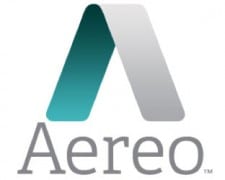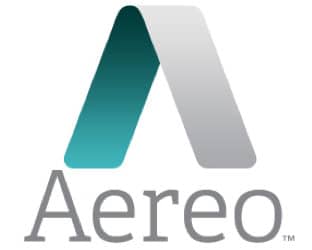 Aereo, Barry Diller’s streaming service that allows subscribers to receive and record programs over the air, has won a key court ruling 4/1. The U.S. Court of Appeals for the Second Circuit in New York found that a lawsuit brought before it by broadcast networks arguing that Aereo’s service is illegal, should be thrown out.
Aereo, Barry Diller’s streaming service that allows subscribers to receive and record programs over the air, has won a key court ruling 4/1. The U.S. Court of Appeals for the Second Circuit in New York found that a lawsuit brought before it by broadcast networks arguing that Aereo’s service is illegal, should be thrown out.
The networks including ABC, CBS and NBC unsuccessfully petitioned the court to overturn a lower-court order denying a preliminary injunction that would have put Aereo out of business.
Said the appellate judges said in their opinion. “We conclude that Aereo’s transmissions of unique copies of broadcast television programs created at its users’ requests and transmitted while the programs are still airing on broadcast television are not ‘public performances’ of the Plaintiffs’ copyrighted works under Cablevision. As such, Plaintiffs have not demonstrated that they are likely to prevail on the merits on this claim in their copyright infringement action. Nor have they demonstrated serious questions as to the merits and a balance of hardships that tips decidedly in their favor. We therefore affirm the order of the district court denying the Plaintiffs’ motion.”
“Today’s decision from the Second Circuit Court of Appeals again validates that Aereo’s technology falls squarely within the law and that’s a great thing for consumers who want more choice and flexibility in how, when and where they can watch television,” said Chet Kanojia, Aereo CEO and Founder. “Today’s ruling to uphold Judge Nathan’s decision sends a powerful message that consumer access to free-to-air broadcast television is still meaningful in this country and that the promise and commitment made by the broadcasters to program in the public interest in exchange for the public’s spectrum, remains an important part of our American fabric. We may be a small start-up, but we’ve always believed in standing up and fighting for our consumers. We are grateful for the court’s thoughtful analysis and decision and we look forward to continuing to build a successful business that puts consumers first.”
The networks sued Aereo 3/12, claiming that it infringed copyrights by capturing their over-the-air signals and retransmitting the programming to subscribers on computers and smartphones without paying for the rights. The networks argued that Aereo would devalue their programming and cut viewership, jeopardizing revenue from advertisers and pay-TV providers. Aereo allows its viewers to skip commercials, like Dish’s AutoHop service.
“Aereo is a retransmission service by its own design,” Bruce Keller, a lawyer for the broadcasters, told the three- judge appeals panel during oral arguments in November.
The networks said that Aereo, by streaming programs to its subscribers, engaged in public performances of their copyrighted works, which requires a license. U.S. District Judge Alison Nathan had denied an injunction in July, ruling that Aereo’s retransmissions weren’t public performances.
“Customers have the right to make private performances,” Bloomberg reported David Hosp, a lawyer for Aereo, telling the appeals court in November. “Supplying the technology to accomplish this does not violate the public-performance right.”
Late last year, a U.S. District Court ruled in favor of Aereo’s service after most NBC, ABC, and CBS, slapped the company with a lawsuit over alleged copyright infringement. The networks have argued that Aereo’s antenna, which receives over-the-air programming and then allows users to watch and record them on any Internet-connected device for $12 a month, is illegal. The networks are seeking fees from Aereo for allowing its customers to record their programming.
Meanwhile. Aereo has expanded from New York City to 29 counties across New Jersey, Pennsylvania and Connecticut. The company is also kicking off a major billboard campaign in the New York area. At CES in Las Vegas this January, Aereo also announced it would roll out to 22 new markets in coming months.
NAB Executive Vice President of Communications Dennis Wharton issued a statement in response:
“NAB is disappointed with the Second Circuit’s 2-1 decision allowing Aereo to continue its illegal operations while broadcasters’ copyright actions are heard. We agree with Judge Chin’s vigorous dissent and, along with our members, will be evaluating the opinions and options going forward.”
According to Judge Chin in his dissent: “Aereo’s ‘technology platform’ is, however, a sham. The system employs thousands of individual dime-sized antennas, but there is no technologically sound reason to use a multitude of tiny individual antennas rather than one central antenna; indeed, the system is a Rube Goldberg-like contrivance, over-engineered in an attempt to avoid the reach of the Copyright Act and to take advantage of a perceived loophole in the law.”
RBR-TVBR observation: Well, get ready: The MVPDs are probably already looking at installing their own antenna arrays across the country to receive local broadcast stations. Can you blame them? What’s the difference between retransmitting local stations over the internet vs. cable? It’s the same pipeline—a white coax cable. Then retransmission fees will be out the door. It is amazing the courts don’t see this is illegal retransmission and copyright infringement. This will certainly go to the Supreme Court. Advertisers need to get on board with the broadcasters at this point as well—it’s their money at stake, too.





